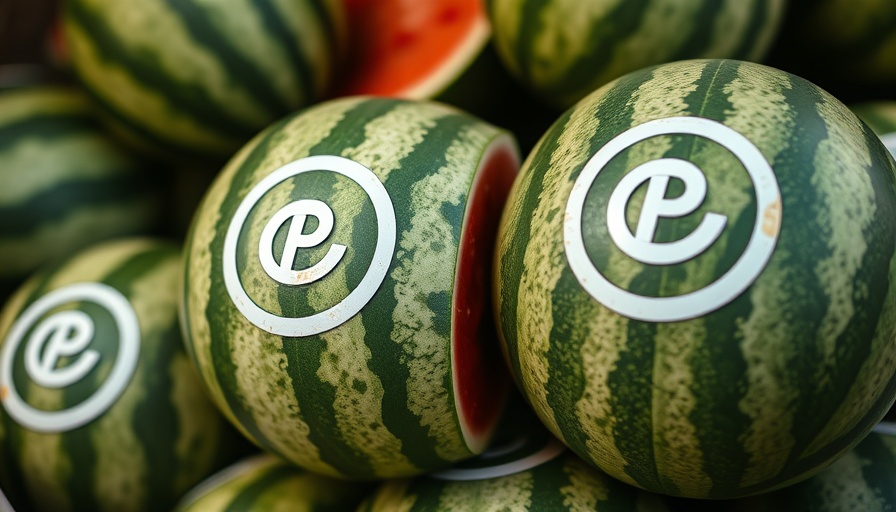
A Controversial Patent on Watermelon: What's at Stake for Biodiversity?
The recent decision by the European Patent Office (EPO) to grant a patent on a shrub-like watermelon plant has raised significant concerns among environmentalists and agricultural scientists, igniting a debate over the implications for biodiversity and food security in Europe. This remarkable plant, which grows in a unique way that allows for more efficient cultivation, presents a fascinating intersection of nature and innovation. However, its patenting raises troubling questions about the future of traditional agricultural practices and the rights of breeders.
Historical Context: The Battle Over Plant Patents
Historically, patents related to plants have been a controversial issue within the EU. The legal framework prohibits patents on conventionally bred plant varieties, rooted in a commitment to protect biodiversity and the rights of traditional breeders. However, this recent patent on a watermelon plant, which arose serendipitously in nature, appears to defy that principle, unsettling the long-held beliefs surrounding intellectual property in agriculture.
Why This Patent Is Different: The EPO’s Justification
The EPO justified its decision by noting that the shrub-like growth was simply discovered, positioning it as a breakthrough in agricultural technology. Christoph Then, a representative of the coalition No Patents on Seeds!, argues that this perspective is fundamentally flawed. The new ruling, he contends, undermines the EU's established guidelines which clearly indicate that classic breeding techniques cannot be patented, thereby allowing for the free use of biological resources necessary for breeding.
Rising Tensions: No Patents on Seeds! and Its Advocacy
The organisation No Patents on Seeds! has led the charge against this patent, underscoring the risk it poses to innovation and biodiversity. With calls for political intervention to clarify patent laws, Then and his colleagues warn that if such patents become the norm, access to essential plant genetic resources will be severely restricted for all breeders, not just large corporations with significant resources.
A Broader Concern: The Future of Traditional Breeders
The growing tension between traditional plant breeding and modern technological interventions raises critical questions about the future of agriculture. With dozens of patents already approved for conventionally bred plants in Europe, it's no longer just about watermelons; this trend threatens the entire landscape of European agriculture. If restrictions on traditional breeding techniques persist, smaller farms could be forced out of the market, leaving only large corporations to dominate the landscape.
Implications for Food Security and Ecological Balance
The implications extend beyond economics and into the realm of food security. As patents consolidate control over agricultural innovations, the concern arises about who will ultimately decide what crops are cultivated, how they are grown, and the prices consumers will pay. The potential for fewer choices in crop varieties could have a dire impact on our diets, health, and the ecological balance necessary for sustainable agriculture.
Future Predictions: Where Do We Go From Here?
As negotiations continue within the EU regarding new legislation on new genetic technologies (NGTs), the outcome will be pivotal. Proposals to ban patents on both NGT plants and traditionally bred varieties highlight a growing recognition of the need to safeguard biodiversity and food sovereignty. The path forward hinges on whether policymakers will establish more stringent regulations regarding patenting practices.
In conclusion, while the EPO's recent decision appears to pave the way for biologically diverse innovations, it simultaneously opens the door for potentially damaging monopolies over nature's genetic resources. This issue calls for urgent action from European lawmakers to clarify and tighten patent regulations to protect biodiversity and ensure equitable access to the building blocks of our food systems.
Take Action for Biodiversity and Agricultural Fairness
As the debate unfolds, everyone has a role to play in shaping the future of food security and agricultural practices. Engage with local advocacy groups, participate in discussions on patent policies, and ensure your voice is heard in matters that directly affect our environment and food systems.
 Rij toevoegen
Rij toevoegen






 Rij toevoegen
Rij toevoegen



Write A Comment